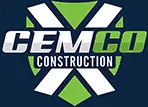Concrete is one of the most fundamental elements in modern construction. Whether you’re planning a residential driveway, a commercial foundation, or a decorative patio, the quality of the concrete work can make or break your project. Choosing the right concrete contractor is just as important as selecting high-quality materials.
This guide will walk you through everything you need to know about hiring a professional concrete contractor, ensuring your project meets the highest standards of durability, aesthetics, and functionality.
The Importance of High-Quality Concrete Work
Concrete is a versatile, durable, and cost-effective building material. However, poorly installed concrete can crack, deteriorate, and lead to expensive repairs down the line.
Why Concrete Quality Matters
The strength and durability of concrete are influenced by several factors, including:
Proper Mixing:
A precise blend of cement, water, and aggregates ensures structural integrity.
Correct Pouring Techniques:
Avoiding air bubbles and weak spots ensures longevity.
Proper Curing Time:
The right curing process prevents cracking and increases strength.
Weather Considerations:
Temperature and humidity can affect the setting process, requiring professional handling.
A professional concrete contractor understands these factors and ensures that your project is built to last.
How to Choose the Right Concrete Contractor
Not all concrete contractors offer the same level of service and expertise. Here are key factors to consider before hiring a professional:
Experience and Reputation
A contractor’s experience in the industry plays a crucial role in delivering high-quality results. Consider:
- Years in business
- Client testimonials and reviews
- Portfolio of completed projects
- Certifications and licenses
Tip: Look for a contractor with expertise in the type of concrete work you need, whether it’s residential concrete driveways, commercial foundations, or decorative stamped concrete.
Range of Services Offered
A reliable concrete contractor should offer a wide range of services, including:
- Concrete Installation: Driveways, patios, sidewalks, and parking lots
- Concrete Repair & Resurfacing: Fixing cracks, resurfacing worn-out surfaces
- Stamped and Decorative Concrete: Custom patterns, colors, and textures
- Commercial and Industrial Concrete: Large-scale foundations, warehouses, and parking structures
Licensing, Insurance, and Permits
Before hiring a contractor, verify that they:
- Are licensed to operate in your state
- Have insurance to cover potential damages or injuries
- Understand local building codes and permit requirements
This protects you from liability and ensures compliance with local regulations.
Cost Transparency and Estimates
Avoid hidden fees by requesting a detailed written estimate that includes:
- Material costs
- Labor charges
- Project Timeline
- Additional fees (e.g., permits, equipment rental)
A reputable contractor provides a clear and honest breakdown of costs upfront.
Customer Service and Communication
A good contractor should be responsive, professional, and transparent. Ask yourself:
- Do they answer calls and emails promptly?
- Are they willing to explain the processes and materials used?
- Do they provide updates throughout the project?
Strong communication ensures that your project runs smoothly without unexpected surprises.
Benefits of Hiring Professional Concrete Contractors
Many homeowners and business owners consider DIY concrete work, but professional contractors offer several key advantages:
Superior Workmanship
Professionals follow industry best practices, ensuring:
- Even, smooth finishes
- Proper reinforcement for durability
- Correct drainage and slope planning
Time and Cost Efficiency
While DIY projects may seem cost-effective, mistakes can lead to costly repairs. Contractors save time and money by:
- Completing projects efficiently
- Reducing material wastage
- Preventing costly errors
Access to High-Quality Materials and Tools
Professional contractors use top-tier materials and advanced equipment such as:
- Laser levels for precision
- Heavy-duty mixers for consistency
- Rebar and wire mesh reinforcements for strength
These ensure a more durable and aesthetically pleasing result.
Common Concrete Services and Their Applications
Concrete is used in various residential and commercial applications. Here are some of the most popular:
Residential Concrete Services
- Driveways & Walkways: Durable, low-maintenance surfaces
- Patios & Pool Decks: Customizable, decorative options
- Garage Floors: High-strength concrete for heavy loads
Commercial and Industrial Concrete Services
- Parking Lots & Sidewalks: Heavy-duty surfaces for commercial spaces
- Warehouse & Industrial Floors: High-performance concrete for durability
- Structural Foundations: Reinforced concrete for stability
Decorative and Stamped Concrete
- Stamped Patterns: Mimics brick, stone, or wood
- Stained Concrete: Adds color and vibrancy
- Polished Concrete: Creates a sleek, modern look
Signs That Your Concrete Needs Repair or Replacement
Over time, concrete can deteriorate due to wear and tear. Watch for these warning signs:
Cracks and Uneven Surfaces
Small cracks may seem harmless, but they can lead to structural issues if left unaddressed.
Water Damage and Pitting
Excessive moisture can weaken concrete, leading to flaking and holes.
Fading and Discoloration
This may indicate underlying issues such as poor-quality materials or exposure to harsh weather.
Sinking or Uneven Concrete
This could be a sign of soil erosion or poor installation techniques.
If you notice any of these issues, consult a professional concrete contractor to assess the damage and recommend solutions.
Conclusion: Invest in Quality Concrete Work for Long-Term Benefits
Hiring a professional concrete contractor ensures durability, aesthetics, and long-term cost savings. Whether you need a new driveway, patio, foundation, or commercial concrete project, working with experienced professionals guarantees the best results.
At CEM-CO, we specialize in high-quality concrete installation, repair, and decorative solutions for residential and commercial projects. Contact us today to discuss your concrete needs and get a free estimate!
FAQs
Q1: How long does it take for concrete to cure?
Concrete typically takes 24-48 hours to set and 28 days to reach full strength.
Q2: What is the lifespan of concrete?
With proper maintenance, concrete surfaces can last 25-50 years or more.
Q3: Can I customize the look of my concrete?
Yes! Stamped, stained, and polished concrete options allow for customized textures and colors.
Q4: How do I maintain my concrete surfaces?
Regular cleaning, sealing every 2-3 years, and avoiding heavy impact help extend its lifespan.
